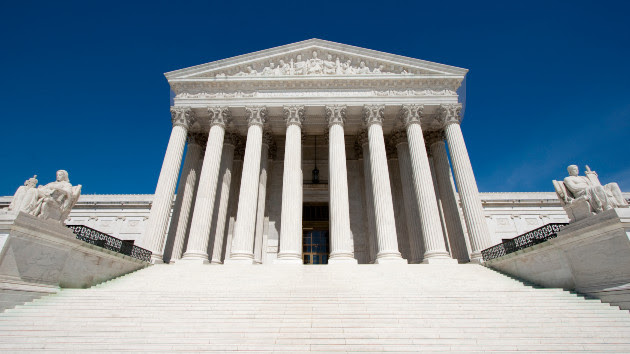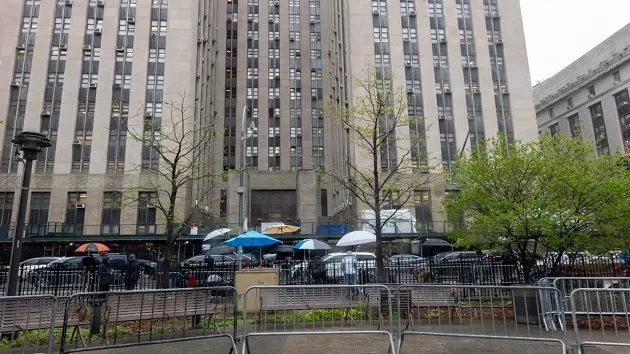(WASHINGTON) — On the nation’s largest Native American reservation – spanning 16 million-acres across Arizona, New Mexico and Utah – one in three households lacks running water, according to the Navajo Nation.
At the Supreme Court on Monday, the tribe will face off with the federal government and a group of states over what it calls a “broken promise” to bolster the reservation’s water supply.
The dispute involves the vital but increasingly strained Colorado River, a resource long the subject of litigation between states and carefully apportioned under a labyrinth of agreements to meet the needs of nearly 40 million Americans across the West.
The tribe argues that the 1868 treaty establishing the reservation “promised both land and water sufficient for the Navajos to return to a permanent home in their ancestral territory.”
It wants the Interior Department to assess the reservation’s water needs and develop a plan to meet them, which experts say would most likely involve diverting more water from the Colorado River.
“The Nation is still waiting for the water it needs,” the tribe writes in court papers, asking the justices to greenlight a “breach-of-trust claim” in federal court.
The government disputes that it ever explicitly agreed to provide water and says that even if water rights were implied by the treaty, there is no enforceable obligation.
“No substantive source of law expressly establishes the particular duty that the Navajo Nation asserts,” the government said in a court filing.
A federal district court sided with the government, denying the Navajo Nation’s claim, saying it had failed to identify a “specific, applicable, trust-creating statute or regulation that the government violated.”
A federal appeals court reversed, reasoning that the reservation could not exist without adequate water and therefore an obligation to supply it was implied.
The states – Arizona, Colorado and Nevada – argue the Navajo Nation should never have been able to bring the claim in the first place, since the Supreme Court has asserted exclusive jurisdiction over disputes involving the Colorado River in a series of decisions and decrees over decades.
They also argue that allowing the tribe to claim expanded water rights over the Colorado would upset pre-existing agreements and ultimately mean less water available to those communities that have come to rely on it.
A coalition of western water associations and consumer groups calls the case “critically important,” warning the Supreme Court about its potential to upend “stability and predictability” of the process to determine water rights.
Allowing the tribe to bring a claim, the groups say, “threatens to undermine the certainty of water rights not only in the Colorado River Basin, but also throughout other water-scarce regions of the United States more broadly.”
The tribe says the U.S. government’s 170-year-old promise should come first.
“The United States made a bargained-for treaty promise. The courts should enforce it,” the Navajo Nation told the court.
Copyright © 2023, ABC Audio. All rights reserved.






